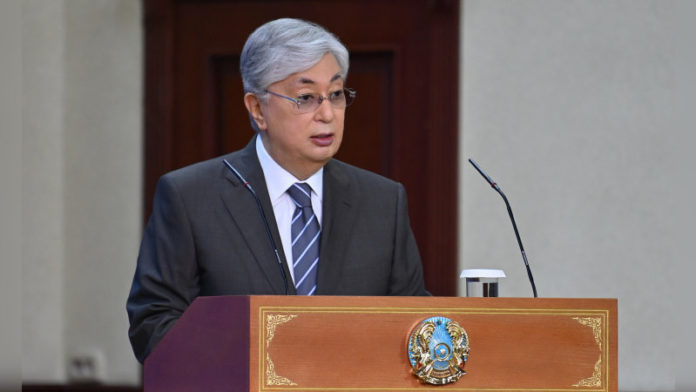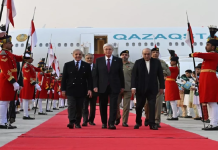ASTANA- President of Kazakhstan Kassym-Jomart Tokayev views the instances of Koran desecration in various European countries as an intolerable incitement that could exacerbate global tensions and erode confidence among nations and their peoples. In a statement released by the Presidential Press Office today, it said:
“President Kassym-Jomart Tokayev considers the acts of burning the Koran in a number of Northern European countries as an unacceptable provocation that might fuel tension in the modern world and undermine trust between peoples and states.
Kazakhstan is the initiator of the Congress of Leaders of World and Traditional Religions. This forum has become a platform for effective and constructive dialogue between prominent representatives of traditional religions and confessions.
The Head of State believes that the increasing incidents of religious vandalism and irresponsible behavior of citizens of the respective states should be subjected to unanimous condemnation as actions that are contrary to the universally accepted norms of peaceful coexistence of states and religions.
The UN General Assembly should also speak out on this issue.”
The condemnation comes amid international outrage over by the public burning of copies of the Quran, Islam’s sacred book, outside embassies of mainly Muslim countries and mosques in Sweden and Denmark. Notably, an assembly identifying as the “Danish Patriots” set alight copies of the Quran in front of the Iraqi, Egyptian, and Turkish embassies in Copenhagen this Tuesday.
Turkey and Iraq voiced their disapproval of the desecration of the holy book, while in other Muslim-majority nations such as Yemen, citizens took to the streets in protest. In an extreme reaction, hundreds of demonstrators in Baghdad infiltrated the Swedish embassy last week, with an unsuccessful attempt to breach the Danish embassy, halted by security forces.
While Denmark and Sweden have repeatedly expressed regret over these incidents, they maintain that under their free speech protection laws, they cannot prevent these protests.
The UN Human Rights Council had earlier, two weeks ago, passed a resolution denouncing the Quran burning as a religious hate act. This decision was made despite some nations warning that such a text might impinge upon the freedom of speech.
As the instigator of the Congress of Leaders of World and Traditional Religions, Kazakhstan has been at the forefront of encouraging dialogue between various religious and confessional representatives. The Congress, which came to life in 2003 in the wake of the tragic September 11th attacks on the United States, serves as a platform for productive dialogue. The most recent Congress, held in Astana, drew over 100 delegations from 50 countries, with noteworthy attendees such as Pope Francis. The mission of this global forum is to bolster interfaith and interethnic harmony, a goal of paramount importance during these challenging times.
The EU’s foreign policy chief Josep Borrell condemned recent Quran burnings in Denmark and Sweden on Wednesday as well.
“Following the recent acts by individuals in Europe that have caused offense to many Muslims, the EU reiterates its strong and determined rejection of any form of incitement to religious hatred and intolerance. Respect for diversity is a core value of the European Union. This includes respect for other religious communities.
The desecration of the Quran, or of any other book considered holy, is offensive, disrespectful and a clear provocation. Expressions of racism, xenophobia and related intolerance have no place in the European Union.






